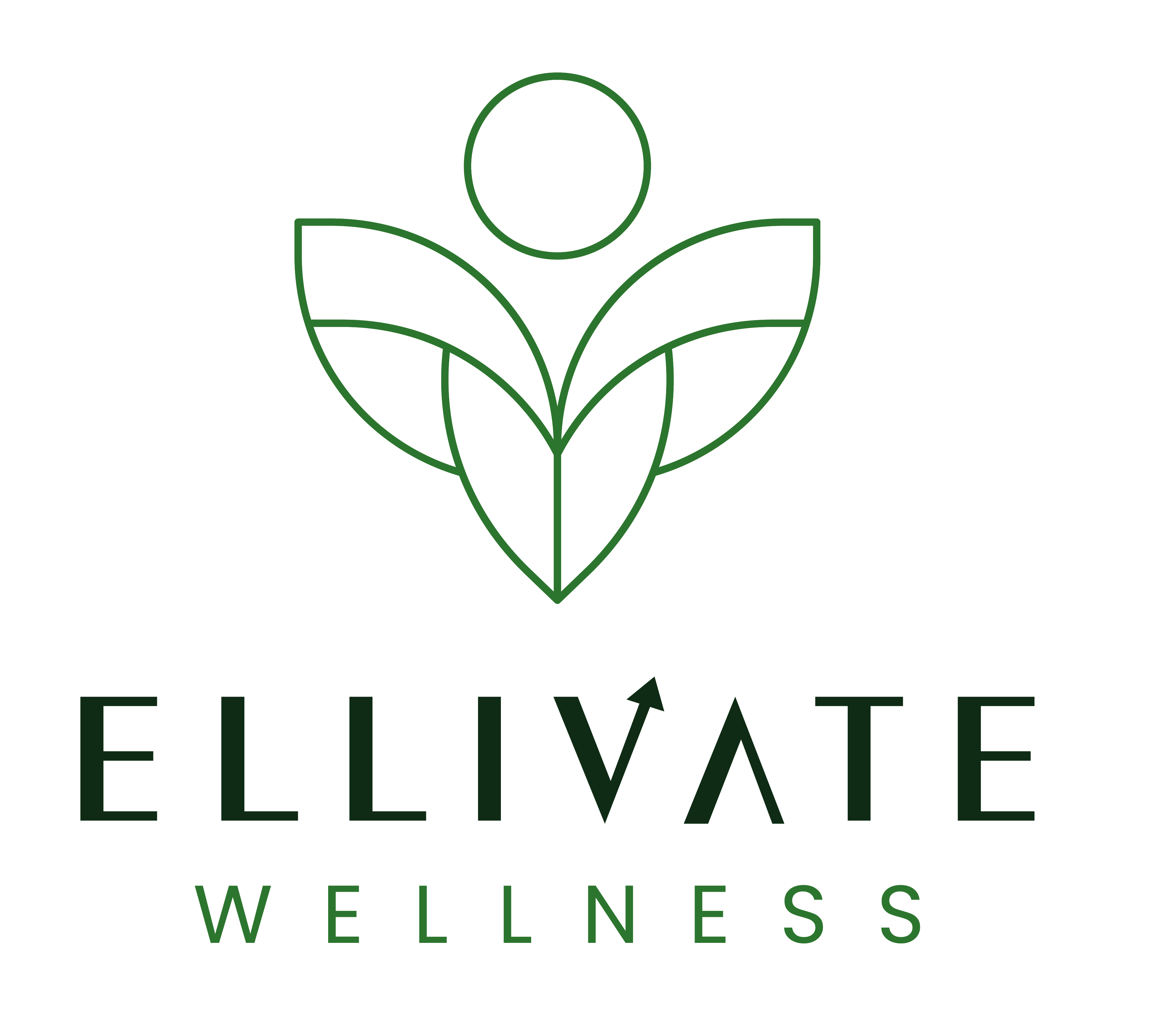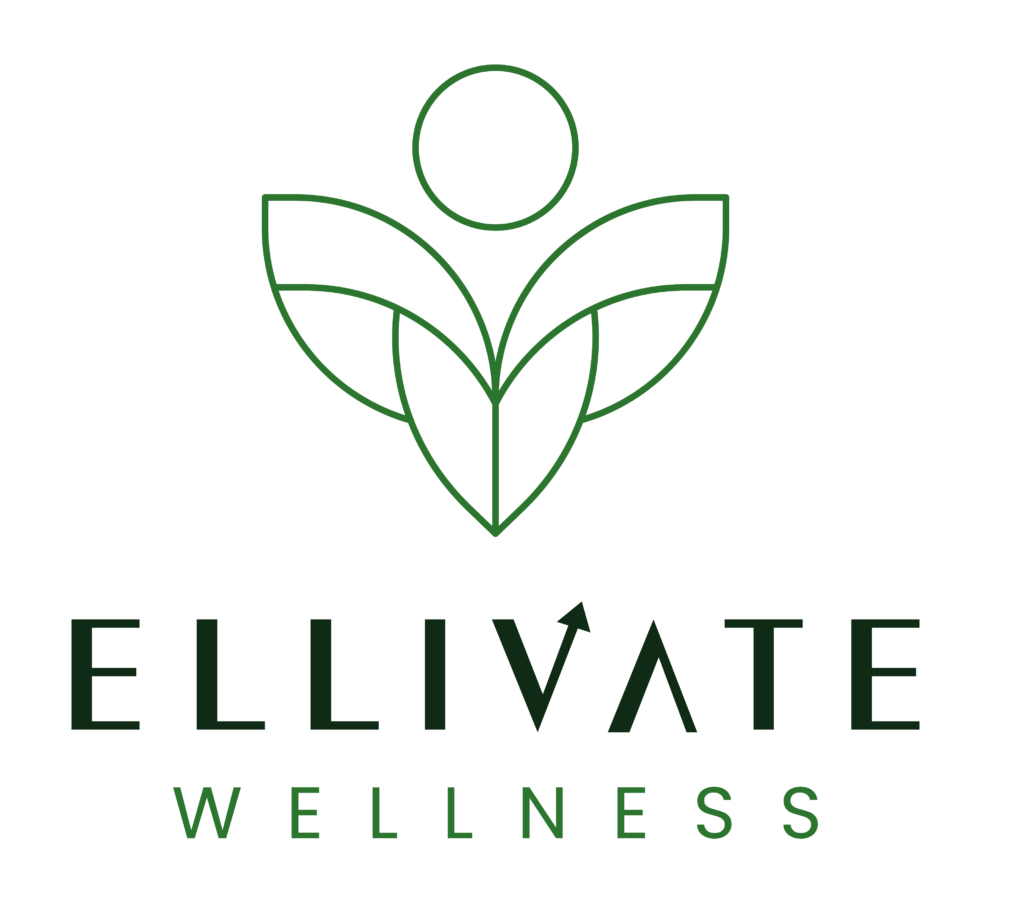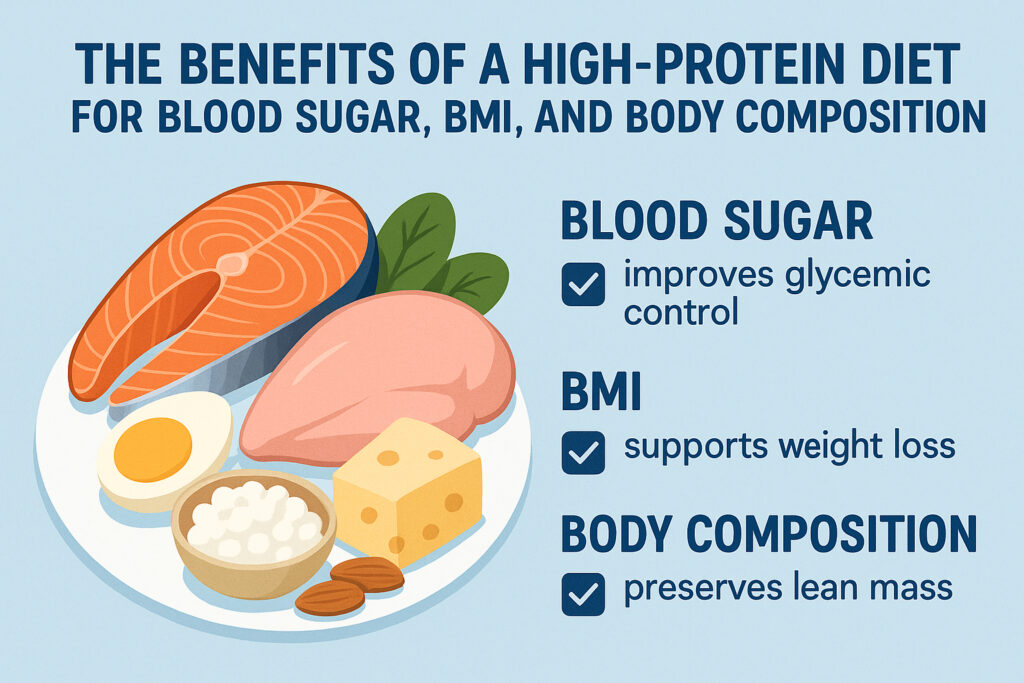Discover how a high-protein diet can help manage blood sugar, lower BMI, and improve body composition. Learn why protein is essential for health and how a health coach can guide you in building lasting nutrition habits.
Why Protein Matters for Busy Professionals and Health Goals
Protein is one of the most essential macronutrients, yet many adults fail to get enough of it daily. Beyond supporting muscle growth and repair, a high-protein diet can have profound benefits for blood sugar management, weight control, and body composition. For professionals striving to maintain energy and health, protein-rich meals can be a powerful ally.
High-Protein Diet and Blood Sugar Management
Blood sugar spikes and crashes can leave you feeling drained, irritable, and unfocused throughout the day. Protein helps by:
- Slowing digestion → preventing rapid spikes in blood sugar after meals.
- Improving satiety → keeping you fuller longer and reducing cravings for sugary snacks.
- Supporting insulin sensitivity → which can help reduce the risk of type 2 diabetes.
By pairing protein with complex carbohydrates, professionals can maintain steadier energy levels and avoid the mid-afternoon slump.
The Role of Protein in Lowering BMI
A high-protein diet can also support weight management and help reduce body mass index (BMI). Research shows that protein:
- Boosts metabolism → the body burns more calories digesting protein compared to fats or carbs.
- Reduces appetite → protein-rich meals promote feelings of fullness, making it easier to eat fewer calories overall.
- Preserves lean muscle → when losing weight, higher protein intake helps protect muscle mass, ensuring most weight loss comes from fat.
These effects make protein a key nutrient for sustainable weight loss and BMI reduction.
Improving Body Composition with Protein
Body composition refers to the balance between muscle, fat, and bone in your body. Increasing protein intake supports:
- Muscle growth and repair after workouts.
- Fat loss by promoting satiety and calorie control.
- A leaner, stronger physique by preserving muscle while reducing fat.
For professionals looking to not just lose weight, but improve overall body composition, a protein-focused eating plan can be transformational.
Simple Ways to Increase Protein Intake
Boosting protein doesn’t have to be complicated. Some practical strategies include:
- Starting the day with eggs, Greek yogurt, or a protein smoothie.
- Adding lean protein like chicken, fish, or tofu to lunches and dinners.
- Using high-protein snacks such as nuts, cottage cheese, or protein bars.
- Incorporating legumes and beans for plant-based protein options.
Small, consistent changes can add up to big improvements in health and energy.
How a Health Coach Can Help Build Protein Habits
While the benefits of a high-protein diet are clear, making lasting changes can feel overwhelming. That’s where a health coach can help.
A health coach supports busy professionals by:
- Identifying current eating patterns and areas for improvement.
- Creating customized strategies to increase protein intake without restricting foods.
- Teaching meal planning skills that make protein-rich meals quick and realistic.
- Providing accountability and encouragement to stay consistent.
- Helping you build long-term habits that support blood sugar balance, healthy BMI, and improved body composition.
Final Thoughts
A high-protein diet offers powerful benefits—from better blood sugar control and lower BMI to healthier body composition. But it’s not about quick fixes—it’s about building sustainable habits around nutrition.
✅ Working with a health coach can help you make those habits stick, giving you the tools and guidance to create a healthier, stronger version of yourself.


